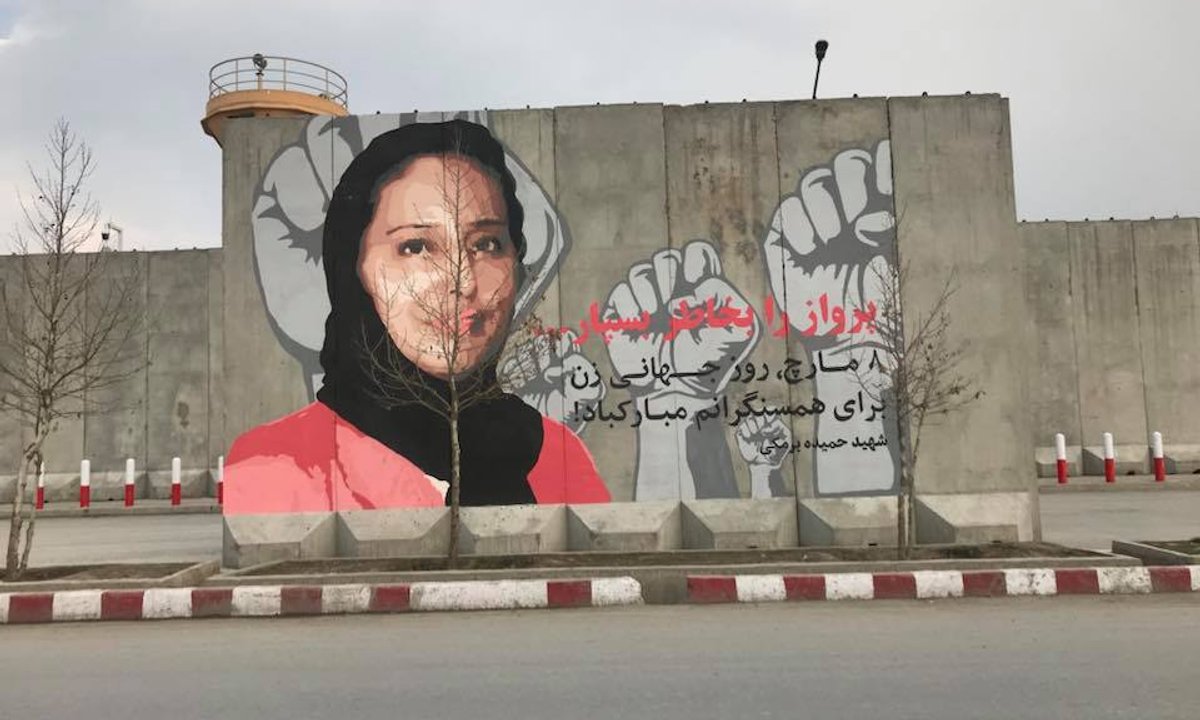
A new report published by the New York-based human rights organisation Artistic Freedom Initiative (AFI) in partnership with the University of California, Berkley is calling on international governments to give Afghan artists and cultural workers refugee status because they are being “overtly targeted” by the Taliban. AFI says the hardline militant group has criminalised artistic expression in the country and that artists, musicians, actors and writers are at risk of extrajudicial killings, arbitrary detention, arrests and public humiliation, while cultural heritage is “on the brink of obliteration”.
In a press statement on the report, titled “Artistic Exodus: Afghan Artists Fleeing Taliban Rule” and published on 14 November, the organisation says “the world is blindly failing Afghanistan”. In addition to the persecution of artists and cultural workers, AFI’s research highlights the destruction or closure of cultural sites and institutions in the country since the Taliban retook control in 2021, two decades after being deposed by a US-led coalition.
“Many artists in Afghanistan are in hiding, have destroyed, hidden, or left behind their artworks and tools, live in dire economic situations due to being unable to practise their craft and earn a living, and are in constant fear of Taliban persecution,” the statement reads. “Despite the circumstances, international immigration and resettlement assistance has been extremely limited.”
Sanjay Sethi, AFI’s co-executive director, argues that international governments should follow Germany’s example in helping Afghan artists to resettle. Berlin initially approved more than 37,000 humanitarian visa applications for Afghans fleeing Taliban rule, many of them from artists. This scheme has since been replaced with the Bundesaufnahmeprogramm, which allows for Afghan artists and cultural workers to apply for relocation to Germany based on the unique risk they face. “Unfortunately, most states have not followed suit,” Sethi tells The Art Newspaper. “The United States has not only declined to provide a specialised pathway for persecuted Afghan artists to resettle in the country, but they have actively denied the entry of Afghan artists with approved visas to perform, study or work in the US out of fear that they will overstay their visas.”
The AFI, which facilitates pro bono immigration representation and resettlement assistance for international artists at risk, has provided legal aid to more than 1,100 Afghan artists and their family members since the Taliban takeover. It is also appealing to non-state actors such as cultural institutions, universities and non-profits to support the resettlement of Afghan artists through sponsored fellowships, residencies and work opportunities.
Death threats
The Afghan artist Yama Farhad said a Taliban fighter aimed a sniper rifle at his head as he painted a mural in Kabul, forcing him to abandon the project. He told AFI that other members of his art collective, ArtLords, have been physically attacked and received death threats. “Kabul did not fall once for us, it fell three times: the first when the Taliban took it, the second when they destroyed our paintings, and the third when they banned girls from going to school,” he said.
The report outlines how, over the past two years, the government has banned girls and women from studying and pursuing careers in the arts. Female filmmaker Sahraa Karimi was in the middle of several projects, including the first Afghan comedy since the 1960s, when the Taliban seized control after US forces pulled out of Afghanistan in 2021. She was also preparing the second edition of the country’s national film festival. “Everything just stopped and was left unfinished, I was forced to go into exile,” she told The Art Newspaper. “I left everything, I could save myself and nothing else. I left all my footage, archives and equipment in Kabul. We lost our dream of a better Afghanistan. We lost democracy and freedom.”
According to Sethi, Afghanistan’s Ministry for the Propagation of Virtue and the Prevention of Vice, which monitors artistic production, has banned secular visual art and “only allows for a limited depiction of religious topics that do not show figures, leaving only landscapes and calligraphy as permitted genres”. He adds that no formal ban has been placed on music but the regime has shut down all major music venues, banned live and broadcast music, and “perpetrated acts of violence on musicians”.
